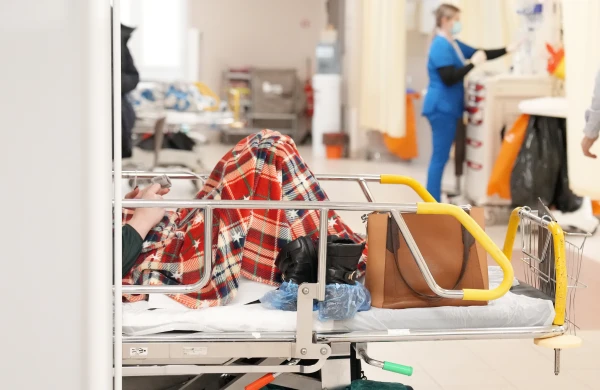
The development and integration of artificial intelligence (AI) in Latvia's cultural and creative industries are hindered by several factors — limited access to quality data, lack of digital skills, insufficient funding, cautious public attitudes, and unresolved ethical issues, according to a new study dedicated to the use of AI and its impact on cultural and creative sectors, reports LETA.
As noted by the authors of the study, one of the main technical problems is access to large and high-quality datasets necessary for training AI models. Most of the data, especially in the private sector, remains unavailable to the general public. To address this issue, the government of Latvia has implemented strategic principles of e-governance and data management, as well as created the Latvia Open Data Portal, which has been ensuring data standardization and accessibility since 2017.
The study emphasizes that a significant barrier to the development of AI remains the level of digital skills. According to the European Commission, in 2023, only 45.3% of Latvia's residents possessed at least basic digital skills — this is lower than the EU average (55.6%) and lower than in 2022. The national AI strategy in Latvia includes raising public awareness about how AI works, launching online courses similar to Finland's "Elements of AI," as well as developing research programs and reforming education.
Financial constraints also affect the development of AI. The EK study for 2024 indicates that 69% of representatives from the creative sector consider access to funding as the main obstacle, followed by intellectual property protection and digitization. At the same time, cultural and creative industries are already actively using various technologies: 77.4% use artificial intelligence, 20% use cloud technologies, 19.3% use virtual reality, and 18% use blockchain-based solutions.
It is also emphasized that public attitudes towards AI remain cautious. A study conducted in 2024 found that residents are concerned about the reliability of information, falsifications, misinformation, and security risks. Moreover, 68% of respondents rate their knowledge of AI as low, and 73% believe that their skills are insufficient for using AI tools.
Ethical and regulatory issues are becoming increasingly relevant. This year, the government discussed the implementation plan for the European Union's Artificial Intelligence Act, which establishes strict requirements for safety, transparency, and high-risk systems. Latvia intends to fully implement this regulation to ensure responsible and reliable use of AI, strengthen the capacity of regulatory bodies, and protect the interests of society.
The study highlights that Latvia has already established strong positions in digital transformation; however, to develop AI, it is necessary to purposefully open data, enhance the level of digital skills, provide funding for the creative sector, and create ethical regulations that will strengthen public trust in new technologies.
The study was prepared by the association "Radošās Idejas" ("Creative Ideas") in collaboration with partners from five European countries — the Basque Country in Spain, Poland, Italy, Hungary, and Estonia. It was created within the framework of the EU program "Erasmus+" — "Cremel 2.0 — Creative Media Laboratory 2.0."
The study analyzes the impact of AI technologies on the everyday work of creative professionals, identifies challenges, opportunities, and risks for sustainable development in the industry in the digital age. In the context of Latvia, special attention is given to the use of AI in culture, ethical dilemmas — authorship and content reliability — as well as the digital skills necessary for professionals to adapt to the new reality.
The goal of the "Cremel 2.0" project is to promote the ethical and effective use of AI in cultural and creative industries through the development of professional skills and international cooperation. The project includes the development of a guide, training, pilot projects, and the improvement of the "Cremel" platform to ensure knowledge exchange and opportunities for continuous education.












